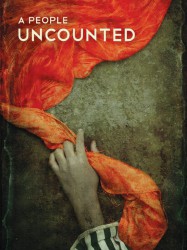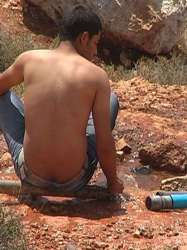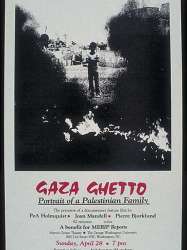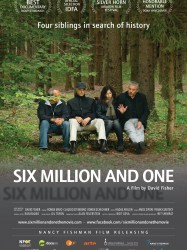Balancing Acts est un film américain de genre Documentaire
Balancing Acts (2005)

Si vous aimez ce film, faites-le savoir !
- Infos
- Casting
- Infos techniques
- Photos
- Vidéos
- Passages TV
- Citations
- Personnages
- Musique
- Récompenses
OrigineEtats-Unis
Genres Documentaire
Themes Cirque, Religion, Documentaire sur une personnalité, Documentaire sur la religion, Religion juive
Note68%










Balancing Acts is a 2005 documentary film by Donna Schatz that chronicles the lives of Chinese acrobat Man-Fong Tong and his wife Magda Schweitzer, a Jewish acrobat from Budapest, Hungary. The two met in Europe on the eve of World War II. They were both at the peak of their careers, performing at the Moulin Rouge and Cirque Medrano, and alongside acts such as Maurice Chevalier and Bill 'Bojangles' Robinson. While their careers were full of success, the spread of Nazism brought them great hardships. Their marriage saw the trials of wartime Europe, post-war poverty, the birth of two sons, and a difficult ten-year separation from one another.
Commentaires
Postez un commentaire :
Suggestions de films similaires à Balancing Acts
Il y a 8954 ayant les mêmes genres cinématographiques, 5756 films qui ont les mêmes thèmes (dont 0 films qui ont les mêmes 5 thèmes que Balancing Acts), pour avoir au final 70 suggestions de films similaires.Si vous avez aimé Balancing Acts, vous aimerez sûrement les films similaires suivants :
 , 1h20
, 1h20Réalisé par Roger Spottiswoode
Origine Etats-Unis
Genres Documentaire
Thèmes Afrique post-coloniale, Le racisme, Religion, Le terrorisme, Documentaire sur la discrimination, Documentaire sur le droit, Documentaire sur la guerre, Documentaire historique, Documentaire sur une personnalité, Documentaire sur la politique, Documentaire sur la religion, Politique, Religion juive
Note71%





 , 1h4
, 1h4Réalisé par Matej Mináč
Genres Documentaire, Historique
Thèmes Le racisme, Religion, Documentaire sur la discrimination, Documentaire sur le droit, Documentaire sur la guerre, Documentaire historique, Documentaire sur une personnalité, Documentaire sur la religion, Politique, Religion juive, Documentaire sur la Seconde Guerre mondiale
Acteurs Karel Reisz
Note81%





Partez à la rencontre de Nicholas Winton, véritable héros d'avant-guerre. Jamais considéré comme tel, cet homme a pourtant sauvé 669 enfants à la veille de la Seconde Guerre mondiale. Dans la capitale tchécoslovaque, alors qu´il se préparait pour des vacances au ski, le jeune Nicholas Winton va organiser une extraordinaire opération de sauvetage d'enfants juifs menacés par les nazis.

The Law in These Parts (2011)
, 1h40Origine Israel
Genres Documentaire, Historique
Thèmes Afrique post-coloniale, Religion, Documentaire sur le droit, Documentaire sur la guerre, Documentaire historique, Documentaire sur une personnalité, Documentaire sur la politique, Documentaire sur la religion, Politique, Religion juive
Note73%





Le film traite du système judiciaire opéré par les forces armées israéliennes en Cisjordanie.

A People Uncounted (2013)
, 1h39Origine Canada
Genres Documentaire
Thèmes Le racisme, Religion, Documentaire sur la discrimination, Documentaire sur le droit, Documentaire sur la guerre, Documentaire historique, Documentaire sur une personnalité, Documentaire sur la religion, Politique, Religion juive, Documentaire sur la Seconde Guerre mondiale
Note73%





 , 1h
, 1hGenres Documentaire
Thèmes Le racisme, Religion, Documentaire sur la discrimination, Documentaire sur le droit, Documentaire sur la guerre, Documentaire historique, Documentaire sur une personnalité, Documentaire sur la religion, Politique, Religion juive, Documentaire sur la Seconde Guerre mondiale
Note75%






Zramim Ktu'im (2010)
, 1h15Origine Israel
Genres Documentaire
Thèmes Afrique post-coloniale, L'environnement, Religion, Documentaire sur le droit, Documentaire sur l'environnement, Documentaire sur la guerre, Documentaire historique, Documentaire sur une personnalité, Documentaire sur la politique, Documentaire sur la religion, Politique, Religion juive
Paths of lives are crossed in one village in the West Bank. Along the broken water pipelines, villagers walk on their courses towards an indefinite future. Israel that controls the water, supplies only a small amount of water, and when the water streams are not certain nothing can evolve. The control over the water pressure not only dominates every aspect of life but also dominates the spirit. Bil-in, without spring water, is one of the first villages of the West Bank where a modern water infrastructure was set up. Many villagers took it as a sign of progress, others as a source of bitterness. The pipe-water was used to influence the people so they would co-operate with Israel’s intelligence. The rip tore down the village. Returning to the ancient technique of collecting rainwater-using pits could be the villagers’ way to express independence but the relations between people will doubtfully be healed.

Unsettled (2007)
, 1h20Genres Documentaire
Thèmes Afrique post-coloniale, Religion, Documentaire sur le droit, Documentaire sur la guerre, Documentaire historique, Documentaire sur une personnalité, Documentaire sur la politique, Documentaire sur la religion, Politique, Religion juive
Note73%






Gaza Ghetto (1984)
Genres Documentaire
Thèmes Afrique post-coloniale, La famille, L'immigration, Religion, Documentaire sur le droit, Documentaire sur la guerre, Documentaire historique, Documentaire sur une personnalité, Documentaire sur la politique, Documentaire sur la religion, Politique, Religion juive
Note56%






Sabbath in Paradise (2000)
, 1h25Genres Documentaire, Musical
Thèmes La musique, Religion, Documentaire sur la musique, Documentaire sur une personnalité, Documentaire sur la religion, Documentaire sur les villes, Le jazz, Musique, Religion juive
Acteurs John Zorn
Note26%






Six Million and One (2012)
, 1h33Genres Documentaire
Thèmes Le racisme, Religion, Documentaire sur la discrimination, Documentaire sur le droit, Documentaire sur la guerre, Documentaire historique, Documentaire sur une personnalité, Documentaire sur la religion, Politique, Religion juive, Documentaire sur la Seconde Guerre mondiale
Note66%





Joseph Fischer's memoir was discovered only after his death. His children refused to confront it, except for David, the filmmaker, for whom it became a compass for a long journey. When David found it unbearable to be alone in the wake of his father's survival story and in his struggle not to lose his sanity, he convinced his brothers and sister to join him in the hope that this would also contribute to releasing tensions and bring them as close as they used to be. His siblings, for their part, couldn’t understand why anyone should want to dig into the past instead of enjoying life in the present. The journey eventually leads the Fishers into the dark depths of the B8 Bergkristall tunnels, part of the Austrian KZ Gusen II concentration camp, where their father endured forced labor during the Holocaust. Illuminated only by flashlights, they seek meaning in their personal and family histories and undergo surgical and revealing discussions about family, survival and individualism only to come to the realization that they are unable to fully understand their father's past and the events that haunted him. Joseph Fischer's last couple of weeks at Gunskirchen concentration camp, were an inhuman experience that blocked his writing. In order to find out what his father failed to describe about Gunskirchen's liberation David located veterans of the 71st Infantry Division who liberated the camp. The elderly soldiers are still haunted and traumatized by the horrific sights they came across when entering the camp. Through their journey, the Fishers become emblematic of the entire second generation who are still grappling with the experience of their survivor parents.
 Connexion
Connexion